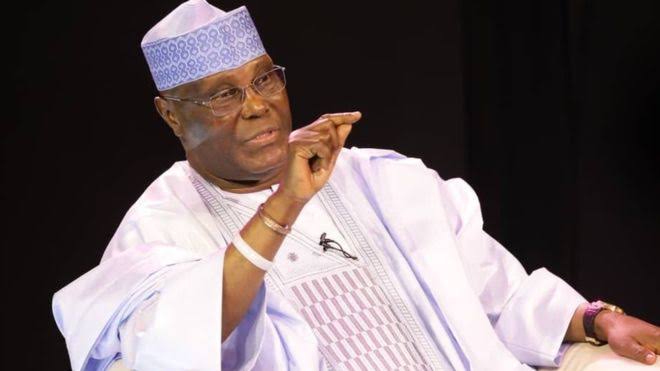Atiku finally dumps PDP — here’s what it means for 2027 election

Atiku dumps PDP — What this means for 2027 elections
Former Vice President Atiku Abubakar, the Peoples Democratic Party (PDP)’s presidential candidate in both the 2019 and 2023 general elections, has formally announced his departure from the party.
In a letter dated July 14 and addressed to the chairman of the PDP in his Jada 1 Ward, Jada Local Government Area of Adamawa State, Atiku said his resignation was with immediate effect.
“I find it necessary to part ways due to the current trajectory the Party has taken, which I believe diverges from the foundational principles we stood for,” he wrote. “It is with a heavy heart that I resign, recognizing the irreconcilable differences that have emerged.”
Atiku’s exit comes after months of speculation and internal wrangling. According to insiders, he had grown weary of the unresolved leadership disputes, disagreements over zoning arrangements, and the inability of the party to reconcile its factions after its 2023 defeat.
His departure was not a solo act—he was joined by prominent political figures including former Senate President David Mark and ex-governors Sule Lamido, Aminu Tambuwal, and Sam Egwu.
In a closed-door meeting held in Abuja, the group issued a communiqué urging like-minded Nigerians to join them in building a “formidable and people-oriented political platform” that can challenge the ruling All Progressives Congress (APC) in 2027. Their move is widely seen as the beginning of a new political alliance, potentially birthing a mega opposition coalition.
Analysis: What This Means for 2027
PDP Weakened at Its Core
Atiku’s departure signals a deepening crisis within the PDP. As one of the most prominent and longstanding figures in the party, his exit strips the PDP of considerable political capital, nationwide influence, and organizational strength. Combined with the loss of other political heavyweights, the party now finds itself fragmented and vulnerable ahead of the 2027 elections. Without urgent reform or strategic alliances, the PDP risks becoming politically irrelevant.
Rise of a Potent Opposition Bloc
The emergence of a new opposition coalition, reportedly involving Atiku, Peter Obi, and other influential figures, could dramatically shift the 2027 electoral landscape. Drawing parallels to the alliance that birthed the APC in 2015, this new bloc is positioning itself as a credible alternative to the ruling party. By combining their grassroots support, regional strongholds, and shared frustrations with the current administration, these leaders aim to forge a movement capable of challenging the APC’s grip on power.
Congratulations @atiku for officially resigning from PDP.
Your next action should be to officially declare support for @PeterObi. Do this & Nigerians will be happy with you. pic.twitter.com/aMu7ju0Qwj
— Dr. Kenon (@drkenon2) July 16, 2025
2027 Primary Landscape Shifts
Atiku’s exit from the PDP will significantly alter the primary dynamics for the next election. His absence creates space for new contenders within the party, but it also introduces uncertainty about who can fill his political shoes. On the other hand, the new coalition he is aligning with might now see him as a unifying figure or compromise candidate—unless internal competition with figures like Peter Obi becomes a point of contention. Either way, the political permutations are becoming more fluid and unpredictable.
APC Gains Strategic Advantage
In the short term, Atiku’s exit weakens the PDP, which may appear advantageous to the APC. With one of its main challengers out and the opposition fragmented, the ruling party might enjoy a temporary advantage. However, the formation of a new, more united opposition bloc poses a longer-term threat. If the APC underestimates this new coalition or fails to deliver on economic and security promises, it may face stiff resistance in 2027.
Road to 2027: Coalitions Are Now Vital
The most significant takeaway from Atiku’s move is that coalitions will likely define the 2027 election. The traditional two-party system is losing its grip, and multi-party alliances are fast becoming the new normal. For any party or movement to stand a realistic chance, building cross-regional and cross-generational alliances will be key. The 2027 election will be less about party loyalty and more about unified opposition and effective messaging.
What next?
Atiku’s departure from the PDP marks the end of an era for Nigeria’s oldest opposition party—and the beginning of what could become a major political realignment. Whether this leads to the birth of a new political force or further disintegration of opposition momentum remains to be seen. What is clear, however, is that 2027 will not be business as usual. The political chessboard is being reset—and whoever forms the smartest, most strategic coalition may end up defining Nigeria’s next chapter.

